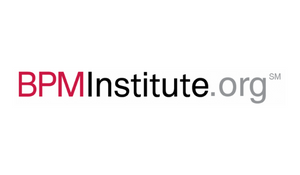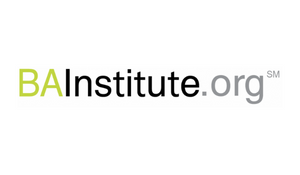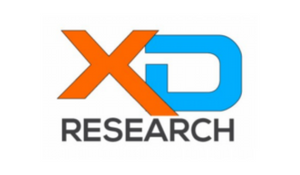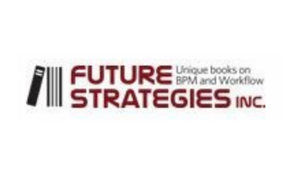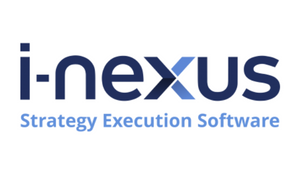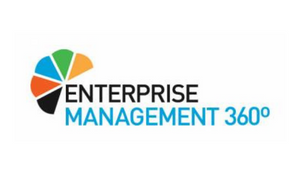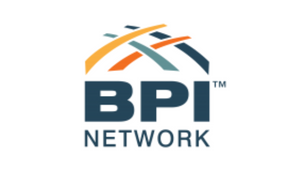

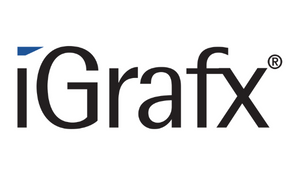

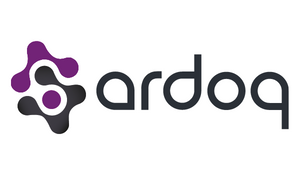
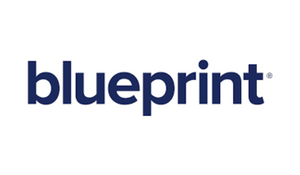
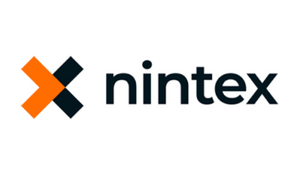
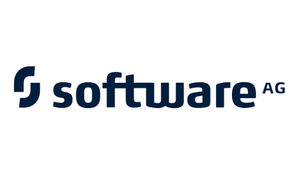

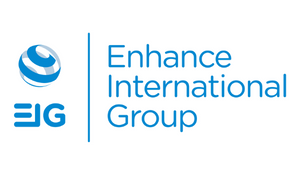
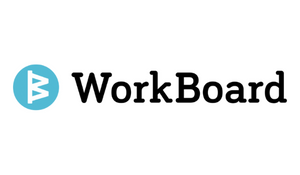
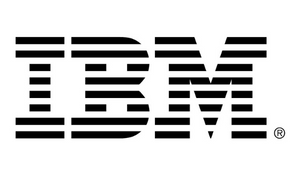


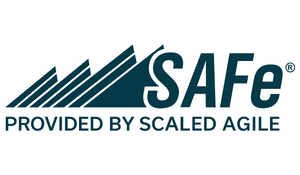
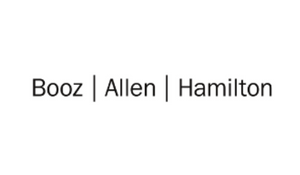
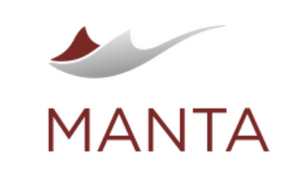

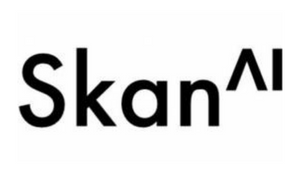

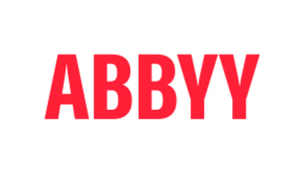


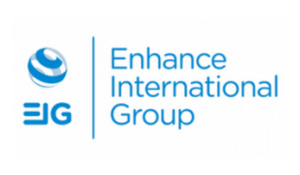


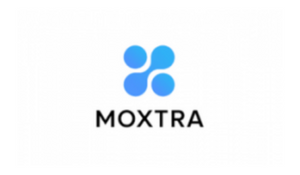
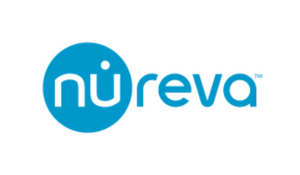
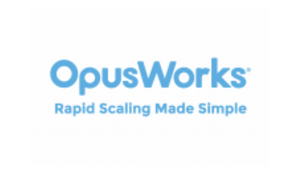
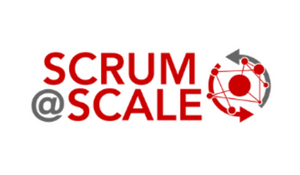
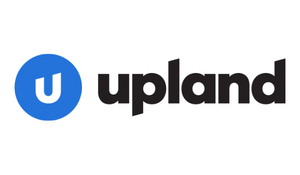
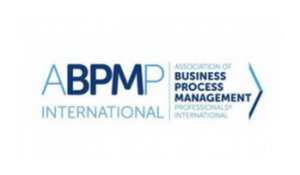
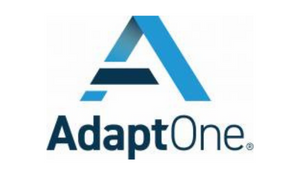
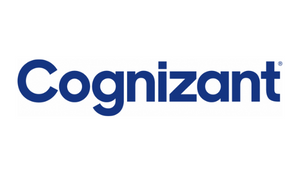
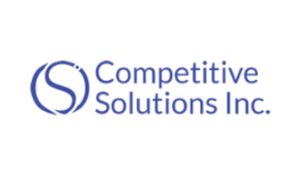
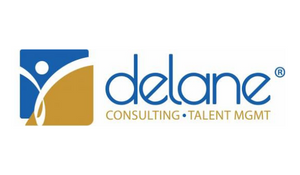

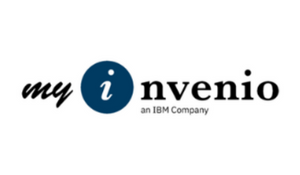

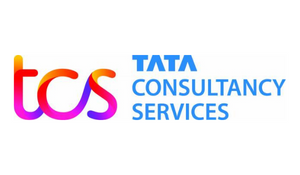
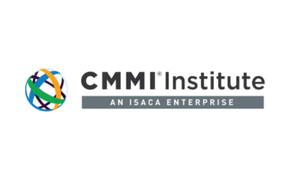
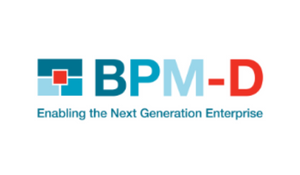

Courtesy of Rabobank's Frank van Geffen, below is a transcript of his speaking session on 'The value of information' to Build a Thriving Enterprise that took place at the Business Transformation & Operational Excellence Summit in Financial Services Live.
-2.png?width=300&name=BLOGS%20COMPANY%20LOGO%20(73)-2.png)

Session Information:
The value of information
In a world where "Big Data", "Data Scientists" and "Data Management" have become the new normal, it is now time to assess the actual value of information that is achieved. What does it take to add actual "intelligence" to your day to day operational business decisions? And why are we only automating things at the moment and not actually adding data driven intelligence?
Key takeaways:
Session Transcript:
He's coming directly from the Netherlands to the world today. And I'm talking about Frank, but happen, who is the Business Intelligence translator for Data Analytics Arab Bank.
Frank is a master of information management with more than 15 years of experience in the field of process management, information, management, analysis, and advice. Last 10 years, he got successfully brought innovative process mining techniques to the attention of the business community. As a business intelligence translator width and rebel bank, he is responsible for implementing an organization-wide process mining capability.
Frank, it's a real gift to have you with us. Thank you so much for sharing your wisdom directly from the Netherlands to the world today.
Thank you. Thank you for welcoming me.
So thanks for listening, and taking the time to listen to, well, my message that I want to share with you. So my name is Frank ... of ..., already introduced me. I'm a business intelligence translator for Bank and I also have a very extensive background in process management and analysis, and information management.
I work at our bank I just want to show you a bit about what we, as a bank stand for. So we have this ambition of growing a better world together.
And that's all about things like the food chain. So we have a large footprint in the agricultural sector, which a lot of customers are farmers And it's our mission to use. All the knowledge that we have of farming to help farmers grow a better world.
But also, because we finance a lot of the companies that will get the food on your plate, we also want to do a good job there to make it more sustainable for the future.
A little bit about Allowable Bank, we're present all over the world, and so mainly focused on the agricultural.
business. During our presentation, at this point, it's not showing yet, Just want to let you know that, sorry, thank you, thank you for that. Hope it's OK now.
That, yes, it is, now. It's coming through now, thank you.
OK, just slightly going back to, you can find our bunk at our bank dot com, that's what I actually wanted to show you.
And here you also find our slogan what I just explained briefly. So we'll go back to the presentation, so if every everyone is able to see, then I want to just touch upon a few on the world around us.
Just had a very interesting session yesterday about the Window theory. And also we talked a bit about the butterfly effect, and it all had to do with the topic of, also be talking about today the value of information.
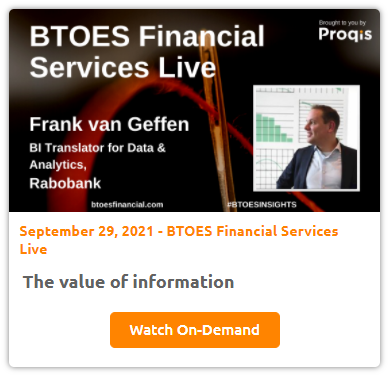 But this Window theory just focuses on the way you view the world.
But this Window theory just focuses on the way you view the world.
You can have, like a window that is transparent, and which you can look through, and you see what is able to see. But in the background, that might be things you don't see immediately.
But we experience it as transparent.
The window theory actually states that when someone looks through the window, he also sees other things like, for example, a curtain, which blurs a bit of the reality that's behind.
And it's all about the ability to find information about what's actually behind the curtain.
It's about having access to that information, which determines what you can and what you cannot see. It's also about not having too much information, of course, so information overload could also impede your vision.
It mightn't also be influenced by laws and regulations.
So, the whole thing that I want to stress today, and the key takeaways that you can hopefully take with you after this presentation, is that information is not data, And that you should pay even as much attention to information management than you do to data management.
If we look at the operations, of course, and we want to improve our processes, and make them more efficient and effective, it's also good that we can make intelligent operational decisions, but how to get to that intelligent decision making. That's what I want to talk about today.
And last but not least, I want to stress your view and stretch your, your consciousness, on the fact that emotions, and experience, and trust becoming even more important today in the world of algorithms, AI.
And do we actually still trust the decisions that we, or others make for us, and all has to do with the actual value of information?
If you look at how to defined it, in general, it's actually the mount, the decision makers willing to pay for information prior to this decision.
OK, so let's go, I will touch upon some introduction, neri concepts. I will explain in simple terms, my view on the value of information.
Then, now, we'll go into what actually is intelligence, how to decide based on intelligence. And we'll wrap up with the key takeaways again.
I will make use of a practical example if device a account manager called Frank, and we will see how is daily operational decisions are influenced by intelligence, OK?
So data is the new oil will hurt that.
We need fact driven insights, predictions based on facts to drive all our decisions. And data scientists is the most **** job in the world at the moment. And they are very scared, of course.
But what about inflammation?
Is there anyone, yeah, getting the right information from all this data, are we actually making more effective decisions, or are we just automating?
Well, it's a tedious tasks to make quicker decisions.
But do we actually know if they are the right decisions?
That can only be true if you have the right information, at the point in time, you make the decision.
So let's meet our account manager.
He's married three children, so House dog, he likes to go by family life, with sports, initial, likable guy.
Its main role within the bank is to provide clients with credit loans, maintain a client portfolio so easily to revise that periodically, and he needs to prevent clients from bankruptcy.
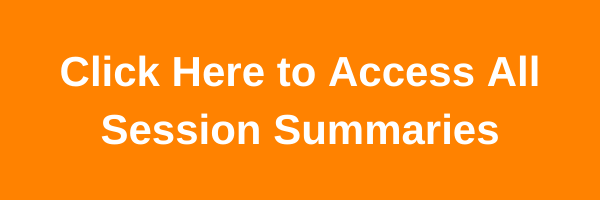 His main clients are small and medium-sized enterprises, and of course mainly farmers in the Netherlands.
His main clients are small and medium-sized enterprises, and of course mainly farmers in the Netherlands.
So this is a brief introduction of the account manager, who needs to make daily decisions, that skipped to the actual value of information.
As I said, it's the amount a decision-maker is willing to pay for information prior to a decision.
I've devised a little example just to make you aware of the actual complexity of this simple scent.
If I need to decide on the holiday activity, and I need information, like what will the weather be like or what activities are available to choose from.
I have several settings I can have perfect information, which cost me $100 or euros, and which will deliver me a happiness of 150.
So if I have perfect information about the weather, if I have perfect information about the activities, that will, that I can choose from.
The likelihood that I will choose the right one is very high. It's 100%.
But I will be modestly happy, because it's cost me 100, so it delivers me 50.
So if I have semi perfect information, I just add there are all kinds of extra skills, of course, but it's just for the example, I need to pay off it as much for 50% of the likelihood of the weather.
So I'm not I'm only 50% sure what the weather will be like.
I only have 50%, half of the available activity's upfront, for as information. Sorry.
That means I have a 50% chance or even less maybe, of getting it right.
If I get it right, the payoff is a bit higher.
So I'd probably be more happy.
But if I get it wrong, I've paid 50, and probably be very unhappy with the result.
So the last situation is, say, I just don't pay for this information.
Maybe I hear from someone?
Yeah, it might be raining tomorrow, but actually.
I'm not sure at all. Maybe 10%. Sure, because of my intuition or something, can look at the sky, of course, but I'm not sure. I also am not sure what activities I can do.
If I'm successful, I will be quizzically happy, because the value of hundred and 40, if I'm not right, which will be very likely.
Well, I've been modestly disappointed because I can actually blame myself for not buying the information.
So, this gives you a very simple idea of what information can do for day-to-day, simple choices.
If you transport to economics, to a business context than you're talking about information, economics, and information economics, you can find more about on Wikipedia.
And there, you have all kinds of extra literature about it, it is of course, related to processes and operational excellence. Operations research is a part of a decision theory, is a part of it, measurement science, and it all is focused on, OK, how can I get economic value from information?
And that's why I'm talking about the value of information as a important concept to start thinking about, OK, let's go back to our account manager and just introduce him a bit more.
Which important decisions? Now, does Frank need to make every day?
So, at the start of his day, he needs to know, OK, which clients to serve or to visit today?
Which revision tasks does he need to do? And maybe some clients need urgent attention.
What information does he need to make those choices?
Maybe a list of clients in his calendar, a work list of efficient tasks, or information to determine the right priority.
so they can choose in which order he might execute each tasks, and how much actually is allowable bonk willing to pay for Frank, to have this right information at the right time, well, how does a lot, of course, but one of the important things in powers, trusts, and, and, and, and judgement of its own employees, so, it provides training, education, and dashboarding, all kinds of facts and figures, tools that, that can be used for planning.
It stresses also a bit of more, what like striking a balance between commercial efficiency and risk, not only in the interest of decline, but also in the interest of the bank. And that's all kind of information that Frank can use when he chooses to fill in his day.
We will get back to that in a minute, because all this well background, that Frank actually has when he needs to make a decision, it's actually called intelligence, But what is Intelligence?
It is the ability to perceive or infer infer information to retain it as knowledge, to be applied to watch adaptive behavior within an environment or context.
It's a very difficult sentence and to make it even more difficult.
Abstraction, logic understanding, self-awareness, learning, emotional knowledge, reasoning, planning, creativity, et cetera, et cetera.
Intelligence is a very broad concept.
I've tried to picture intelligence in this flow because it's also a sort of a continuous thing.
If you would say intelligence is the combination of experience, skill, attitude, and knowledge, like the knowledge is then the accumulated information, then you would say, OK, how do I get two A more like data driven form of intelligence? What can I do to act and decide more correctly or more effectively?
Well, if we talk about those facts, the dao data scientists and the big data community stress, then effect is actually an event or circumstance whose reality is certain because it can be seen to be perceived and measured instrumentally. If that's the case, then you can store it, can store it maybe in a database digitally.
We can also store it in books.
Most facts still are stored in human brains, but people don't realize that we think the Internet holds all our facts because it has so fast amount of datas.
Actually, the opposite is true.
Most facts or most data is still stored in the brains of humans.
And if you apply this definition, it's not easy to actually say that something is actually effect.
But that said, from those facts, from those data, concepts, we can extract information.
And it's actually better processing, organizing of that data, structuring of that data.
But more technically, it's also because you want to reduce your uncertainty in the choice.
The example that I gave is how much uncertainty do you want to introduce when choosing a holiday activity.
What's some?
Some people are need less uncertainty. Others can deal with more uncertainty.
It's also very depending the people that are looking and dealing with the data. So, information has also different meanings, in different contexts.
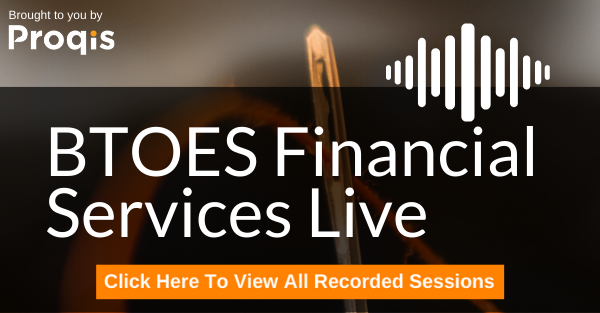 Context, and is subjective to experience skills, and attitude.
Context, and is subjective to experience skills, and attitude.
So, in that sense, information is something completely different from data.
I think that's the thing that we need to understand.
If you combine this information, act and decide, again, you build up knowledge and actually use all the intelligence that you have at your disposal.
So, in practice, what kind of intelligence is available?
So, if I am Frank, our account manager, needs to have some support, some intelligence, to make his daily decisions. What does he have?
These are examples, of course, there are lots, lots more available, but it's already complex enough.
But he has his personality. He's a family man.
He's a team player, wants to win.
And fairness is one of his most important tricks, job description. He knows what's expected from him. The first responsible for all his clients. He needs to be a knowledgeable adviser and he needs to be decisive.
So each to make often needs to decide on things.
He has all kinds of client domain knowledge, market share, conversion rates, churn rates. We call client branch knowledge here like.
We have all these reports and researches and regulation documents, and sites that are available for him to understand what is actually happening in the branch of his clients.
He also knows what market shares that our work has in this branch, and he also knows what conversion rates are for clients getting you, credits, churn, rates are, and also the bankruptcy rates.
Our CRM system might deliver him all kinds of information on his customers.
Then we have like the latest news about what's happening.
His prioritize work list is current candle There, is predictive of descriptive information from machine learning algorithms. That might signal something as important or to pick up, and in the end, it'll says, management culture, company goals, co-operation is an important feature of rabobank. We are co-operative bank, so that's a culture issue. He might leave, and growing a better world.
It's important for him, And, OK? Farming is our core business.
These kinds of intelligence, you can actually rate ohm not only rational Objective Intelligence, It's also very emotional.
So, I tried to make a sort of a scale here, for you, too, to have A, to get a idea, which part actually stress is more on the emotional side of people, which parts stresses more on the rational side. So, fake facts and figures. and all the systems, work lists, job descriptions. All these things are more rational and they are objectively fisher bold. It can be torched or they are computed and actually have more of the rational side of your information available.
Other things are emotional. It's a kind of an emotional intelligence. As a account manager, he needs to have a lot of emotional intelligence.
Because he's talking to other people, so he needs to have a sort of an intuitive intelligence to be able to use all these well, information sources to be able to make the right decisions.
This is actually at the, my message here, is, intelligence, and is far more than having data, or big data in systems with algorithms, processing them.
It's always the human that's actually interpreting things and doing something with it, and this human, as the conflict between his emotions and his aggression, OK?
Then, how to decide, based on all this intelligence, because, it can be a love, of course. So, if you look at intelligent decision making, there are all kinds of structures and processes that you can follow.
Roughly speaking, it's good to have an idea of what the problem is, that you want to decide on.
Not every day or every time, it's absolutely clear.
But if you have a choice to make, it's often good to have specific objectives to know a bit about, OK, if I choose A this will be the consequence for choose B And that will be the consequence.
Maybe I want to know a bit about my risk tolerance and also how much uncertainty I want to have, or M accept, I find acceptable, It's good to think of alternatives. What if I choose something completely different, or are there actual alternatives? Are they linked to each other?
So, are multiple decisions?
Well, maybe in a dependency chain, if I choose distant that happens, then I need to choose that, et cetera, like a process.
And also, it's good to have an idea on the effect of your decision, So if you want to actually learn there, so if you want to make it intelligent, you want to learn from it to measure the result, and learn from the result, improve your next decision.
Then, back to Frank.
Yes. A lot.
two way in his daily decision tasks, so his question is, like, Which clients to serve today?
So what I've listed here to make effective of example, of course, but I have subjective, emotional things that I can use and I have more rational things and I'm not just looking at A a start of the day.
will show its schedule.
His workday started half plus eight, ends at five it's just a classical workday.
Some things are already planned in his agenda has some free spots but overall he says he has a ketchup meeting with his team grow appointment with the manager to learn as we call that within our bunk, your, your, your more your performance talk, or how can I, which education should follow, how can I perform better, et cetera, yet, to appointment with potential clients, and those things, he knows how much time it will cost him.
Um, what he also sees is that he has a work list with a couple of revisions, that need approval.
He needs to credit approvals, to, to determine, and to give, or to deny, and also to new offers, to finalize.
Then when he checks his voicemail at eight o'clock, he has a request from a client in distress, that's on the verge of bankruptcy.
He knows that if he wants to call this client, it cost him 60 minutes.
He sees all kinds of rating from the dashboards. he seized at 5%, is overdue, credit, depth. His bank has 5% overdue credit ratings. Actually, the norm is 2%.
So we think that's not good. Maybe you should pay attention to that. Is you're also seeing some negative sides on the market share.
So actually, we need new, new customer's interest rates are going down, so that's not good for profit of the bank.
Still, in his job, it's a Fictive example, of course, it gets a commission for every sale he makes. And there is some branch highlighting news popping up on the screen that says, the potential bankruptcy of livestock farmers is threatened by mega staples that are, are.
coming to the Netherlands to actually take over their business on the other side.
.png?width=742&name=Screenshot%20(4).png) He has this emotional, well, baggage that you can can use and they say, Yeah, I believe in growing about the world. I feel responsible for all my clients.
He has this emotional, well, baggage that you can can use and they say, Yeah, I believe in growing about the world. I feel responsible for all my clients.
It is important to socialize and listen to the other colleagues.
I prefer winning in and as a gloating new deals.
And it's also not fair for farmers to go bankrupt due to make a stable. So, is fairness is also playing along a bit. Well, what is his choice here? What's his choice problem, actually?
Well, based on the schedule, At the beginning, he has 190 minutes of free time left.
And he needs to choose from not plant activities, which take 240 minutes. You see, this is a very day-to-day operational decision that he needs to make.
So, he's faced with a choice.
He needs to say, no. to 60 minutes of requested time.
Personally, wrote, it, gets dissed down a bit more general, but in the end, it comes down to, OK, which clients should I serve them?
Should I reschedule already made appointments?
Should I skip some efficient tasks maybe postpone the urgent need for it, for the client that is on the verge of bankruptcy to tomorrow.
Here, you see the conflict between his emotions and between all the data effects that he might have, that lead him, India, and to make a choice.
For each one of us, this choice might be different.
It's also important that they be dead.
He has a group manager that now, at this point of time, that he really gets into conflict, but you can say, calls his manager, says, OK. Can you help me?
Because I'm in conflict, it's not fair, the farmers go bankrupt, so I need to call this client. But yeah, I know there are two new offers to be finalized or no, credit rating is sir.
We aren't We have too much overdue credit rating so maybe I should focus on those and leave the two new offers for what they are. Or maybe I can skip the team ketchup meeting but it is important to socialize.
So here you see both forms of intelligence because this is all information and the intelligence that he is using.
Focused on a few simple decisions.
So, how much is he willing to invest, to actually make a choice?
That really depends on the amount of uncertainty that shrilling to accept the consequence, in this case.
If he chooses one, what will be the consequence when he chooses another thing?
So in the end, the message here is, it's just having data, just having big data.
Just having data scientist that can automate a lot of things for you, doesn't make the decision more easy, because his machine learning or algorithm could have said, just visit the new clients because we need new market shares.
So, it's not that easy.
So I hope this, this gives you an idea about the value of information and why it's so important to actually more start looking more at information as a concept instead of only data.
So, I'm already in my wrap up, That means I've taught you, or try to convey the concept of the fact that information is not the same as data.
So I hope you will start looking at this as another process of actually giving meaning to data that actually needs to be managed.
If you're not already doing that, of course, Data first, information management, we're now focusing a lot on data management.
doing a good job, but information management's almost not feasible, and for information management, the same holds for data management. You need acquisition, you need custodianship, you need distribution.
You need disposal.
To make intelligent decisions, I've tried to show you the loop and the complexity of what it actually means To decide how much intuition do you use?
How much object effects are there available for you to actually choose from.
And then the end emotions, experience, trust are very important in the day-to-day decisions that we make, Even if we automate 99% of our processes or everything goes digitally.
I think just by doing that, emotions, index experience, and trust become even more important. What's your actual driver? Is it fairness?
Are these algorithms all fair? That gives you all this information. Is booking dot com? Fair, when you book a room?
I'm not sure.
So, in the end, it's all about the value of information.
So, how much are you willing to pay for the right information at the right time?
I guess I'm good within the limits of time. So, for me, that was my story.
I hope you have some questions.
Fantastic.
Frank, what an important topic to draw awareness to and the and and discuss. So, as you highlight a farewell, let me bring my camera up here.
 As you highlighted there, well, there is so much in the age of big data and and data science and management. And structures and ownership and burdens and not enough is talked about in terms of the information. And that really is key to decision making. So, since you have looked at this topic with greater depth than most tab, what do you think if an organization is doing a better job at this, the most?
As you highlighted there, well, there is so much in the age of big data and and data science and management. And structures and ownership and burdens and not enough is talked about in terms of the information. And that really is key to decision making. So, since you have looked at this topic with greater depth than most tab, what do you think if an organization is doing a better job at this, the most?
What are some of the processes or methods that or approaches that they may have been developed internally to start tackling this this challenge?
I think one of the important things that you could start with is more objectively documenting different decisions.
What are the actual important operational decisions that are taken every day?
Instead of implementing a complete process chain at once, within that process, are a lot of micro decisions.
We have the data, like I'm an expert in process mining, so you can use technologies like process money to uncover oldies.
Simple between brackets decisions are made during oldies operational cycles.
Try to get a grip on what the essentials are of those decisions from actual information needs around those decisions.
We are doing that when we're thinking about technology, so when we want to automate or digitize shouldn parts of processes for efficiency reasons or speed, but it's then also framed within the capacity of the technology.
Say, for example, we could think a little bit further in time, and we understand a certain decision we need to make and we can use quantum computing.
What would the benefits be? Just not think only in the frame of current Internet?
Technology does this up in our disposal.
So that try to transcend that what you're used to and document your decisions a bit structurally, then build upon those information needs.
I tried to get a system around that.
Maybe it's a bit of business rules management, but that's This is of a high level clear.
Yeah. No, absolutely. You remind me of some of the things that the ... has done, that Bridgewater Financials.
I'm not sure if you're familiar with the work that he has done on, on decision making, where, whether it's a very structured approach, far away, people are the facts, and people's opinions about the facts. And because as you highlighted in your presentation decision, for those who are not experience in this field, there is, there's somebody, there are somewhat naive to think that they're collecting the right Data is enough.
But the decision makings actually intrinsically in neuroscience has shown that, certainly, in the last decade, for a lot of experimentation.
The decision making is fundamentally an emotional process, not a rational process.
And the how do you, how do you, how do you balance, and it's not even a balance and say, how do you blend rational decision making with emotional decision making in organizations? Do you have any suggestions for that?
Yes, every time that you implement more data, facts from your systems, implement them with the actual people that do the work.
Let them experience the advantage of the simple addition of a date effect.
We have all kinds of agile teams, for example, that have backlogs.
And that, if you just can analyze the effect of what they're doing and just give it back to them in a simple form, like, OK, the next sprint, based on this analysis that we did, you should do this. And then see what the effect is.
So keep it smaller.
And let people let the individuals' experience tea, the benefit of having more measures and more objective facts.
Like, I'm not showing it, but I'm working Apple Watch. For example. It meshes all the time, all kinds of things, and then gradually, it shows me as an individual, what I can do with it.
And I'm starting to trust it and I'm starting to build on it and I can't do without it anymore.
So, and then it gradually augments your emotions or change them even.
Gradually also changes your, your decisions.
So, it's it's, I think this getting people into a more data driven mindset starts actually with the individuals in the operations and not from top-down that say you need to base. your decisions are more facts because it's not working.
The great insights, I want to just looking at the feedback from the audience and the questions coming in from the audience, Joseph Lackey who is Brian was attending from Florida today. Says that awesome presentation.
I had a choice between Athenian International Board Conference or a trade trade show and I chose a trade show because the vendor's data seem more critical for our future thinking standpoint to interconnect for director leadership going forward with deer management teams.
So, so, when he's talking about, I think the insight here in this commentary is that, sometimes, 1, 1 data point, or maybe perspective, if you will, leads all of our decision making. This leads to another interesting question that I have seen come up in the commentary, is the decision making was very complex. I mean, even on the holiday example you showed, you just showed a couple of things that we can wait. And usually, businesses, systems, are very complex. You're trying to weigh all these different things, and the human brains are awful machine when it comes to a multiple factors.
So what are some suggestions you have for I'm going to ask the first question and then I'll have a follow up on that. But as individual decision making, when you have two-way multiple factors, what are some suggestions you have for professionals to, for better decision making? What what should they do when confronted with complex the CEOs with multiple factors? How they shape, how should they approach us, an arrow like that?
If you're a junior, trusting your seniors.
So investing in people in this.
Yeah, four days is very important.
So as an organization that you need to know that you're experienced, employees can help your juniors in trusting their decisions.
That means, but if you're more experienced and you're confronted with a new situations like we have all these ethics, I'd like to finance not to finance and.
Seek the. Yeah, try to challenge yourself, not to decide immediately.
 But also you have a sort of like if you're buying a house, you can't weigh all the things subjectively. Sometimes you just feel what the right choice is.
But also you have a sort of like if you're buying a house, you can't weigh all the things subjectively. Sometimes you just feel what the right choice is.
And trust in that, that's also if you need to have, like a compliance officer looking along, involve those.
If you think an extra set of eyes could help always use them, But.
You build up the better decisions by doing that. So deciding, making an error, and deciding again.
And if, if you're a company, I think, how long does that very well fosters a culture of making these mistakes, well controlled, then you learn even faster, and you start trusting your decisions even better.
And so, if, if, if you're, you're, you're correct. This is a very complex area, and most decisions are more based still on intuition and emotions than on object effect.
So, that means that trusting in your employees, trusting in yourself, that you're you're able to make the right decisions, is very important.
Yeah.
This is such this is such a rich topic, Frank. Because as you're saying there, you know, so much of what we do is intuition, and then we have this other side that we try to be more objective about decisions. So, we bring the data in, and sometimes that may help or may not help. If the quality of the data is not right, and you talked about this, Big Data, for example, has led to many, many, very poor solutions, because data pipelines, context is meaningless. And a lot of times, if you don't engage the right people, if you don't understand the context, you can have all the data in the world is not going to help them make the right decision. in your thought very clearly about this.
On your, on your presentation, and by the way, the data apartheid's context as meaningless.
It's pulled from Walter Shoe Heart in 19 32. So it's like, there's nothing new, right? Now, has been around for quite some time. I asked a question about individual decision making, which is already complex. Now, let's throw out another level of complexity that a lot of our decisions are not individual decisions. They are collaborative decision making. Now, we have to make a team make a team based type of decision on what should do, what are some of the challenges, and maybe some of the approaches that we can use for better, collaborative decision making.
Like, I showed that the steps you can take for intelligent decision making, structure always helps When you have more of a team effort.
Look at Agile teams nowadays that day.
Not only rely on what the product owner tells them to do, they feed the product owner with their efficiency when they refine stories. They learn from each other what are more important things, but they always have a sort of a structure.
Like we have, what drives us is a certain set of goals.
So, if we have that as a focus point, we can start aligning the choices with those goals.
Having a situation where most businesses don't have situations where they don't have goals. Only if you're a really innovative and just trying to come up with something completely new.
But usually you, you, you gather around the goal, you first get the team to embrace 1 or 2 goals, decisions, priority decisions, or most of the decisions that they need to make, come up.
And as a team, you actually learn, we document our decisions, like, in the sense, OK, what we did now was, like, choose, based on the value of this business as a fish to value, and the other businesses risk mitigation value, OK, what did we find it important? in this case?
Was it the largest shouter or was it the fact that it was actually quantified that we find the quantification more important.
In that sense, if you give, if you highlight your choice criteria, you learn which team member find switch criteria more important. It's like the fairness ... personality that finds fairness more important than just profit.
I will always choose a little bit differently.
So if you take a summarize, if you take a structured approach, show, frame the problem that the decision needs to be about.
Is it, if it's about priority, you need two priority criteria, are there any alternatives?
So, you can use those, those, those well guidelines, those structures, but the main advice is, give yourself time to learn.
If you do pokery in a, in an agile session, it's all about getting to know what it means if someone gifts five points.
It's not always objective.
So if you do that a couple of times together, you also document a little bit what the criteria are that someone uses, You learn as a team, and you get better in team decisions.
Clear, Franke, that's fantastic.
Many other questions came up related to see him making for innovation, decision making for different industries. Unfortunately, we don't have time to address all these questions now. But I'm going to ask the audience to just post that on LinkedIn, on their our conference, the policy. You can find that under my name, Frank and others, who would be able to access that, if you want to Frank to answer at least dagenham on your question. And that that's one way that we can that we can continue the conversation. I want to thank you very much for addressing this very important topic, and sharing your expertise or global audience today.
Thanks for the opportunity.
Thank you, Frank, Ladies and gentlemen, that's franke, um, then to happen directly from the Netherlands, he is a business intelligence translator for data and analytics, a rebel bank, and the fascinating reveal and focus on this important topic of intelligence for data, for data. For decision making. Data is not enough. We must have the right information and information for the right intelligence, which is incredibly complex. And the very important to highlight the concepts that he did for all of us. We're going to be taking a break now. When we come back, we're gonna go from the Netherlands to Canada. And we're gonna bring you one of the global experts on artificial intelligence, and not the concept of artificial intelligence on the applications of artificial intelligence across industries.
And, you, to, this session, is going to be led by ..., who is the Artificial Intelligence and data Analytics leader at Dell Technologies, directly from beautiful Toronto in Canada. He's going to talk about AI powered digital transformation. So, please take a break now. I'll see you back at the top of the hour with Bill one.

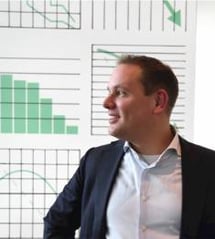 Frank van Geffen,
Frank van Geffen,
BI Translator for Data & Analytics,
Rabobank.
Implementing Self Service Process Mining Capability for Rabobank

View our schedule of industry leading free to attend virtual conferences. Each a premier gathering of industry thought leaders and experts sharing key solutions to current challenges.
View Schedule of EventsWelcome to BTOES Insights, the content portal for Business Transformation & Operational Excellence opinions, reports & news.
-------------------------------------------------------
Search for anything
Insights from the most progressive thought leaders delivered to your inbox.
Insights from the world's foremost thought leaders delivered to your inbox.
Being a hero is all about creating value for others. Please invite up to 5 people in your network to attend this premier virtual conference, and they will receive an invitation to attend.
If it’s easier for you, please enter your email address below, and click the button, and we will send you the invitation email that you can forward to relevant people in your network.
View our schedule of industry leading free to attend virtual conferences. Each a premier gathering of industry thought leaders and experts sharing key solutions to current challenges.
View Schedule of EventsWatch On-Demand Recording - Access all sessions from progressive thought leaders free of charge from our industry leading virtual conferences.
Watch On-Demand Recordings For FreeDelivered by the industry's most progressive thought leaders from the world's top brands. Start learning today!
View All Courses NowThe premier Business Transformation & Operational Excellence Conference. Watch sessions on-demand for free. Use code: BFH1120
Watch On-DemandInsights from the most progressive thought leaders delivered to your inbox.
Insights from the world's foremost thought leaders delivered to your inbox.
Being a hero is all about creating value for others. Please invite up to 5 people in your network to also access our newsletter. They will receive an invitation and an option to subscribe.
If it’s easier for you, please enter your email address below, and click the button, and we will send you the invitation email that you can forward to relevant people in your network.
Courtesy of Nintex Pty's Paul Hsu, below is a transcript of his speaking session on 'Improve employee productivity during and post-COVID by ...
Read this article about HP, Best Achievement in Operational Excellence to deliver Digital Transformation, selected by the independent judging panel, ...
Read this article about BMO Financial Group, one of our finalists, in the category Best Achievement in Operational Excellence to deliver Digital ...
Read this article about Cisco, one of our finalists, in the category Best Achievement of Operational Excellence in Internet, Education, Media & ...


